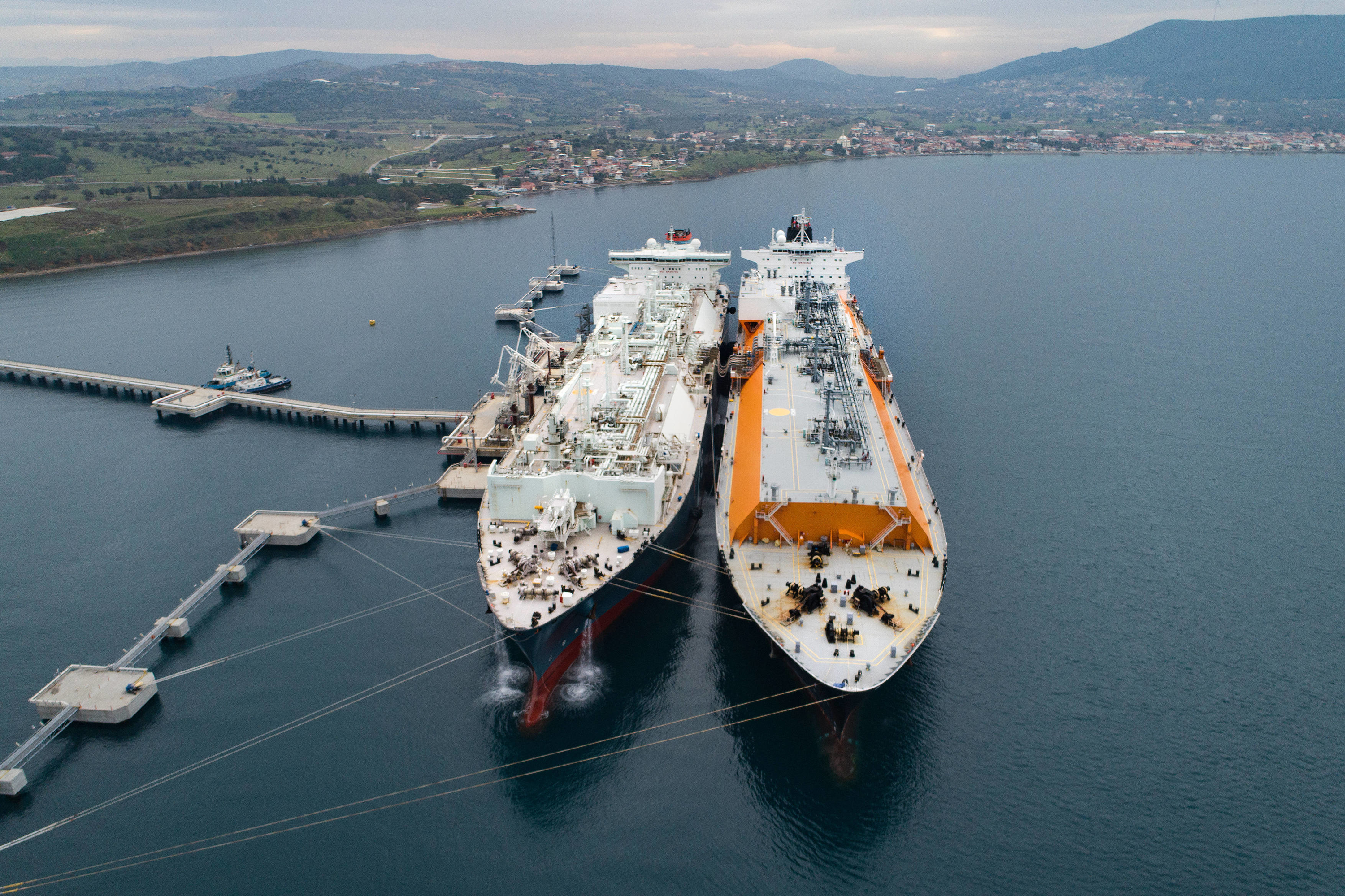LNG deal at centre of legal and environmental storm in South Africa
South Africa’s government is being taken to court over the award of a $15 billion contract to Turkey’s Karadeniz covering three 20-year, liquefied natural gas-to-power deals that aim to help resolve a short-term electricity crisis. In late March, the government chose eight preferred projects — including the trio proposed by Karadeniz subsidiary Karpowership — to provide an emergency fix for debilitating brownouts and blackouts. Gas-based schemes dominated the planned investments at the expense of wind and solar, triggering a furore among politicians and activists opposed to fossil fuel energy.
Karpowership aims to moor power barges at Coega and Richard’s Bay on the Indian Ocean seaboard and at Saldanha on the Atlantic coast. These three vessels, running on LNG, would provide 1.22 gigawatts of power to the national grid. However, local company DNG Energy has filed court documents alleging that the tender process was rigged.
It wants the Karpowership deal to be dropped in favour of its own onshore LNG offering. According to Bloomberg, DNG’s case will not be heard in the Pretoria High Court until mid-July at the earliest. This timing could jeopardise Karpowership’s deal, because it has only until the end of July to wrap up all regulatory and funding requirements for its contracts to take force and begin production in mid-2022.
In an affidavit filed last month by DNG and seen by Upstream, the South African company claimed the tender process was tainted by corruption. Bloomberg reported this week that Karpowership, in an answering affidavit, said DNG “recklessly seeks to impede an infrastructure programme much needed in South Africa” and called on DNG to expand on allegations of wrongdoing. Opposition politicians have questioned why Karpowership’s contracts would run for 20 years when the requirement was for short-term emergency supplies, and wondered how the cash-strapped government can afford the $15 billion it is expected to cost to meet the payment terms of these deals.
Politicians also want more detail on the Turkish company’s local partner, Powership, and, in light of hearings into years of government corruption in South Africa, whether it has links to members of the ruling African National Congress, their associates or families John Steenhuisen, leader of the Democratic Alliance party, has described the Karpowership deal as “deeply suspect”. He argued that Karpowership vessels are normally contracted for two to five years, not 20 years, and called them expensive compared to solar. “We’ll be paying 2.30 rand [$0.166] per kilowatt hour, while Saudi Arabia has just signed a power-purchase agreement for solar power at a record-low $0.0104 per kilowatt hour, which is equivalent to 15 [South African] cents per kilowatt hour in South Africa.
” Although Steenhuisen conceded that electricity from powerships will be about 30% cheaper than current emergency supplies from state-owned Eskom’s open-cycle gas turbines, which burn diesel, he stressed “there are alternatives that are cheaper, cleaner, less risky and more job-creating”. Steenhuisen said power buyers will be paying more in real terms because the imported LNG “to fuel these ships is priced in dollars and linked to a carbon tax, both of which are likely to push the price up in South African rand”.
He cited energy experts as saying solar and wind combined with battery storage could provide the same amount of power as the Karpowership deal and with the same lead time. Climate change campaign group 350Africa said the 20-year Karpowership deal is “unprecedented” in its duration and will tie the country into a future dependent on fossil fuels, long after the electricity supply gap has been closed. Green Connection, a sustainable development campaign group, called for the government to invest more in solar and offshore wind in particular, rather than gas. The three power barges would be supplied by Karpowership SA, a joint venture between Karadeniz and Powergroup, a black economic empowerment company. Powergroup, established in March 2020, “brings no skills or expertise to the table, having no prior experience in energy generation”, according to Steenhuizen. The Democratic Alliance wants the bid adjudication process made public.
Failing that, it will invoke a freedom of information request to try to obtain the details. Energy Minister Gwede Mantashe has denied any political interference in the awarding of the contracts, while senior officials from the ministry told parliament recently that the power procurement bidding process was fair, competitive and above board. The selection of Karpowership is also controversial because it was granted environmental exemptions and a waiver from local-content obligations, which means fewer jobs for South Africans.(Copyright)

